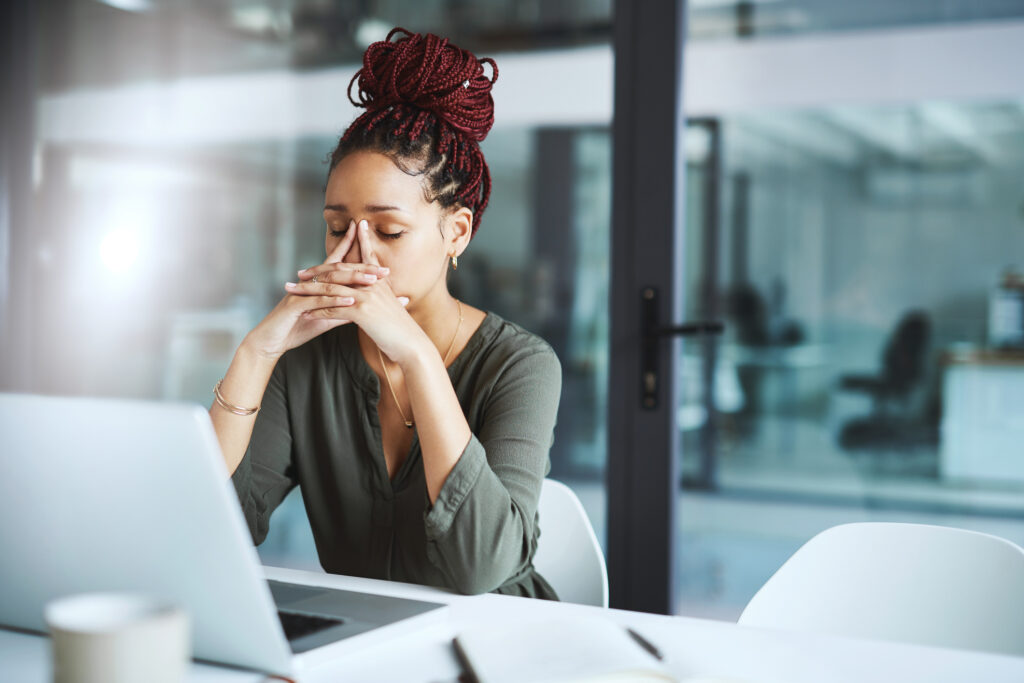Anxiety is a mental health disorder often rooted in fear of the unknown and “what ifs.” Anxiety can be crippling in many ways, preventing someone from taking chances, moving forward, and experiencing life to its fullest. Left unchecked, it can harm the body physically and emotionally.
Anxiety is the mind’s way of trying to protect the body from further harm. In small amounts, it is manageable in everyday life, but when it starts to prevent you from living life, it is time to seek treatment and get to the root cause of the problem to remedy it. No matter the cause of your anxiety, it is possible to overcome it with therapy and learning skills to cope.
A Closer Look at Anxiety
Many people struggle with worry in their day-to-day life. By itself, anxiety isn’t a problem. It anchors the protective biological response to danger that boosts heartbeat and breathing, pumping oxygenated blood to your muscles as your body prepares to fight or flee. It is a survival instinct, and we need it. If you walk into a dark place and can’t see, your body will react with a heightened sense of awareness and anxiety; this is your body telling you that there is the possibility of danger.
However, for people who struggle with anxiety disorders, this natural response becomes overwhelming. Anxiety can feel debilitating; an individual might feel constantly overwhelmed and as if they are unable to complete everyday tasks. Anxiety disorders affect nearly one in five American adults each year. People with these disorders have feelings of fear and uncertainty that interfere with daily activities. Anxiety disorders can also increase the risk for other medical problems such as heart disease, diabetes, substance abuse, and depression.
The Many Faces of Anxiety
There are various types of anxiety, including:
#1. Generalized Anxiety Disorder (GAD):
GAD affects nearly seven million American adults. People with GAD typically worry over everyday issues, such as health, money, or family problems, even if they can logically recognize there is little cause for concern. They may startle easily, struggle with an inability to relax, and have trouble concentrating. They may also find it hard to fall asleep or stay asleep. Physical symptoms may manifest into headaches, muscle aches, or unexplained pains. Symptoms often get worse during times of stress.
#2. Social Anxiety Disorder
Social anxiety disorder is one of the most common types of anxiety disorders. It affects both men and women equally, with about 15 million U.S. adults diagnosed. People with a social anxiety disorder may worry for days or weeks before a social event. They often feel embarrassed, self-conscious and are afraid of being judged. They may find it hard to talk to others or keep a conversation going. Physically, they may blush, sweat, tremble, or feel sick to their stomach when around other people.
#3. Panic Disorder
Panic disorder affects around six million American adults. People with panic disorder have sudden, repeated bouts of fear, called panic attacks, lasting several minutes or more. During a panic attack, they may feel that they can’t breathe or that they are having a heart attack. They may fear a loss of control or feel a sense of unreality. Not everyone who has panic attacks will develop panic disorder. However, if the attacks consistently occur without warning or creating fear of having another attack at any time, then it’s likely someone is struggling with panic disorder.
Coping Through Anxiety
It’s important to remember that you are not your anxiety; you are bigger than your anxiety. Managing anxiety can start with checking the facts. For example, if you look over the side of a bridge and notice how high up you are and are afraid of falling, think to yourself:
- Are my feet firmly on the ground?
- (If you are in a car) Am I a safe distance from the edge?
- Is there help nearby just in case?
Checking the facts can dispel some anxieties when you feel like there is impending doom. Understanding where your control is in a situation gives you power even when you feel powerless. Of course, this is easier said than done but still very possible to do with practice.
The impulse to act out of fear can sometimes feel greater than stopping to check the facts of a situation. Start small, focus on what is in your control and work your way up. Start with a crawl, move to a walk, then on to a run. You will make it to the end of the tunnel.
Many people struggle with different types of anxiety. Anxiety often stems from a fear of the unknown. It can also be linked to social situations. There are many ways you can cope with anxiety. However, if anxiety is beginning to affect your everyday life significantly, it may be time to seek professional help. Remember, you are not alone in this battle; there are many people ready to help you. So Cal Mental Health is here to help you walk through anxiety. We understand and empathize with the pain you are in. Let us lead you in the right direction during this fight and hold the umbrella over your head to protect you from the storm above. We treat various mental health disorders and can help you find the tools and treatment modalities that help you heal and manage your anxiety. If you or someone you know is struggling with anxiety, call So Cal Mental Health at (949) 502-2041.












